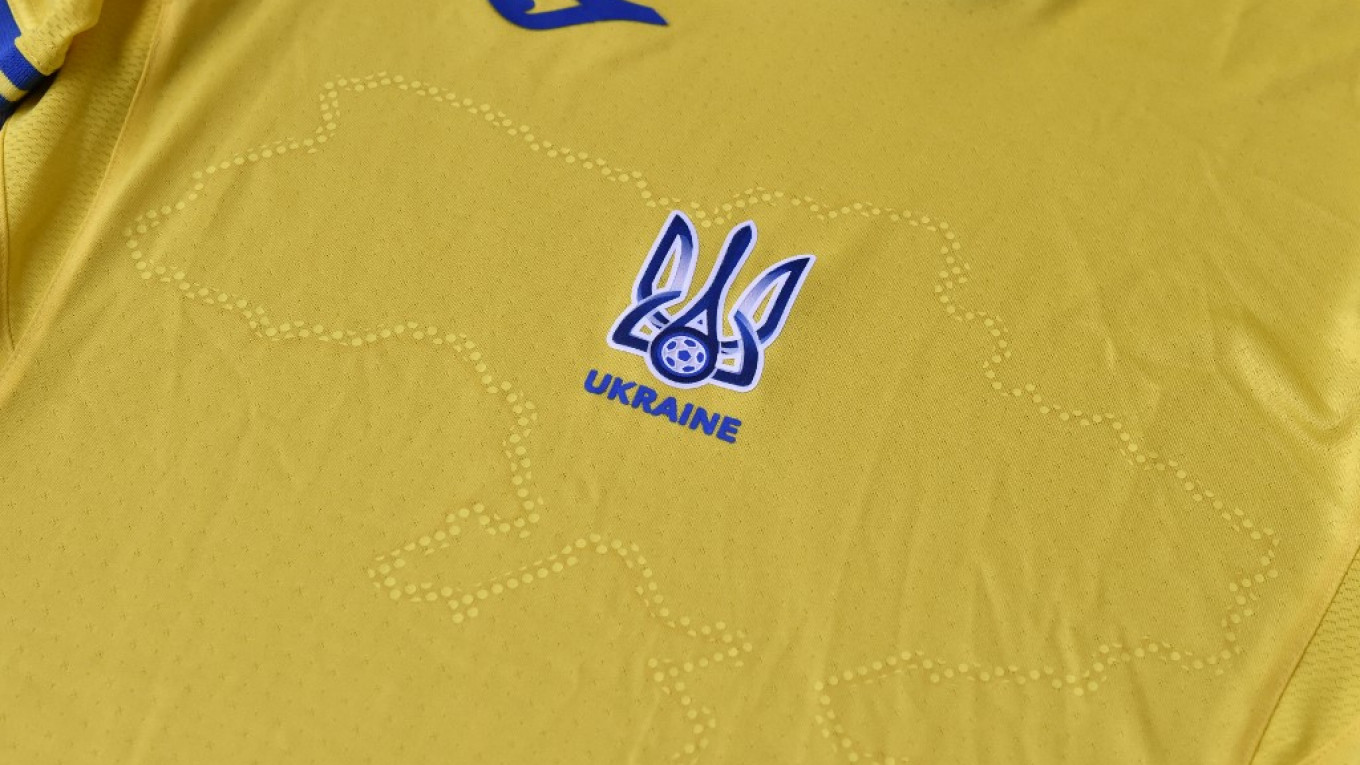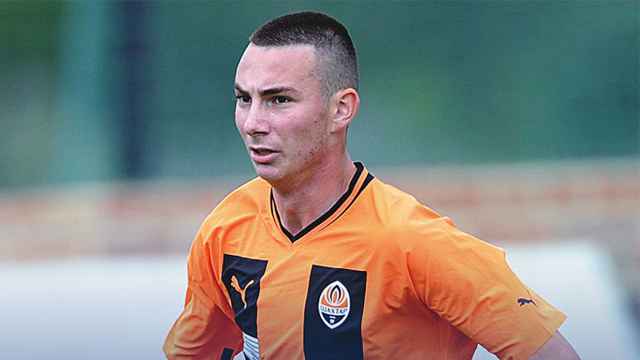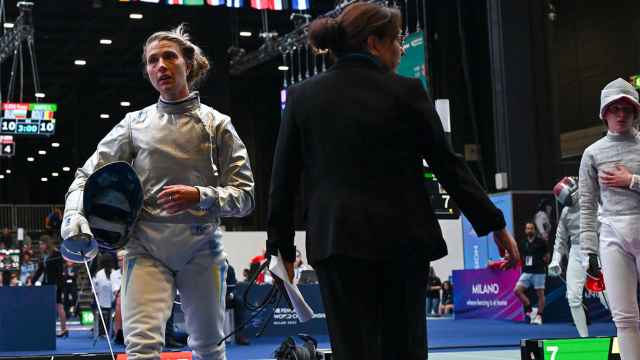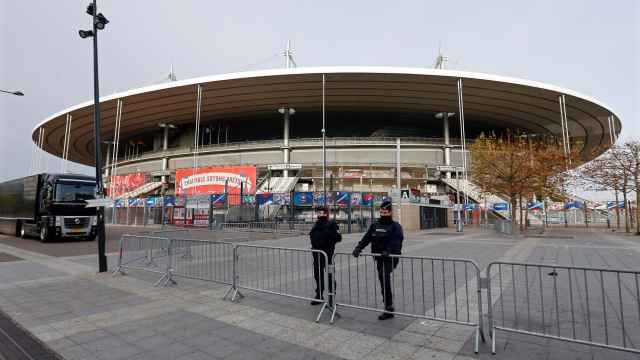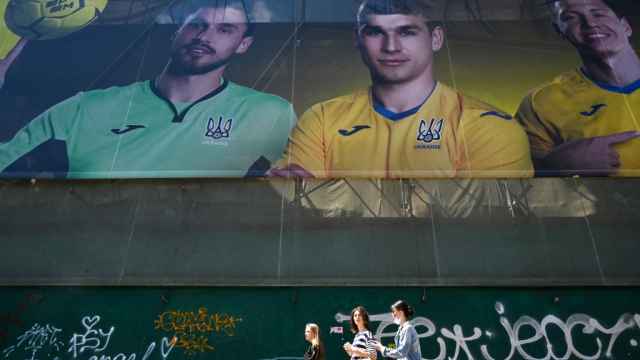Russia on Tuesday sent a letter of complaint to UEFA over Ukraine's "political" Euro 2020 kit that features the outline of Moscow-annexed Crimea and is emblazoned with popular patriotic chants.
In the letter from the Russian football federation to UEFA just three days before the Euro starts, it said: "We draw attention to the use of political motives on the Ukrainian national team's jersey, which goes against the basic principles of the UEFA kit regulations."
Kiev has provoked Moscow's ire after its football association unveiled Euro 2020 kits that show the outline of Ukraine including Crimea, which was annexed by Russia in 2014.
The shirts also feature the words "Glory to Ukraine! Glory to the Heroes!"
Ukraine President Volodymyr Zelenskiy was quick to back the shirt after news of Russia's UEFA-bound letter broke.
Posting two photographs on Instagram of himself holding a jersey with the number 95, Zelenskiy said: "The Ukrainian national football team's new jersey is in fact not like the others.
"It knows how to shock. It bears many important symbols that unify the Ukrainian people."
UEFA traditionally stresses the importance of steering clear of politics in football.
But in a statement to AFP, European football's governing body said the Ukrainian shirt "has been approved by UEFA, in accordance with the applicable equipment regulations."
According to UEFA kit regulations, items must not "offend common decency or transmit political, religious or racial messages."
Most countries do not recognize Russia's takeover of Crimea.
Andriy Pavelko, the president of the Football Association of Ukraine, said the design had been agreed with UEFA "long before" the kit's official presentation on Sunday.
On the front of the yellow shirt, the outline of Ukraine — which gained independence from the Soviet Union in 1991 — is picked out in white, including Crimea and the separatist-controlled regions of Donetsk and Lugansk.
"Glory to Ukraine" is a patriotic chant that became a rallying cry for protesters who ousted a Kremlin-backed leader during a popular uprising in 2014.
The revolt was condemned by Moscow and sparked a crisis in ties between the two countries. Russia annexed Crimea and supported Russian-speaking insurgents in Ukraine's east. The conflict has claimed the lives of more than 13,000 people.
The slogan has drawn criticism from Moscow for its association with World War II-era nationalist groups who cooperated with the Nazis.
Russian Foreign Ministry spokeswoman Maria Zakharova said that Euro 2020 organizers and fans "should know" that the Ukrainian rallying cry "imitates" an infamous Nazi slogan.
She also derided the map, saying Ukraine's football team "attached Ukraine's territory to Russia's Crimea."
Euro 2020 will be played from June 11 to July 11 across 11 cities including St. Petersburg. Russia's second city will host seven matches, including a quarter-final.
Ukraine have been drawn in Group C, opening against the Dutch in Amsterdam on Sunday before facing North Macedonia and Austria in Bucharest.
Russia are in Group B and open against Belgium in St. Petersburg before taking on Finland at the same stadium four days later. Their group stage culminates on June 21 against Denmark in Copenhagen.
A Message from The Moscow Times:
Dear readers,
We are facing unprecedented challenges. Russia's Prosecutor General's Office has designated The Moscow Times as an "undesirable" organization, criminalizing our work and putting our staff at risk of prosecution. This follows our earlier unjust labeling as a "foreign agent."
These actions are direct attempts to silence independent journalism in Russia. The authorities claim our work "discredits the decisions of the Russian leadership." We see things differently: we strive to provide accurate, unbiased reporting on Russia.
We, the journalists of The Moscow Times, refuse to be silenced. But to continue our work, we need your help.
Your support, no matter how small, makes a world of difference. If you can, please support us monthly starting from just $2. It's quick to set up, and every contribution makes a significant impact.
By supporting The Moscow Times, you're defending open, independent journalism in the face of repression. Thank you for standing with us.
Remind me later.


